Subscribe to:
Post Comments (Atom)
skip to main |
skip to sidebar

ISSUES

SPRAYING HUMANS

Voltaire

Clare Daly

THE EMPIRE FILES

This is what democracy looks like!

American Journalist

Fighting for G.O.D.

Is a Myth

Captured in Ice

The Leap Manifesto

Carl Sagan

PEACE

The Dalai Lama

REJECTS ZIONISM

7 days before his assassination

George Tames/The New York Times

English Writer/Speaker

AP Photo/Charlie Neibergall

TO BIG TO JAIL

Summer of August 1963

CARE Conference in Washington, D.C. (Amanda Lucidon/CARE)

HUMANITARIAN

WAR IS OVER

Member of WAMM

NOT WAR

WE SAY NO TO WAR, PEACE is a HUMAN RIGHT

MintPress News founder and editor

Becomes Youngest Winner of Nobel Peace Prize

Inspiration, Activism and Solidarity

IARP Deputy Director

CODEPINK/Global Exchange

STAND UP & SPEAK OUT

Ralph Nader

1960-1999
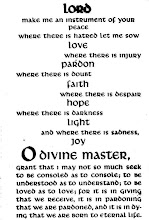
by Wilfred Owen Welsh Poet

at Rackets Hearing

PEACE OUT OPOL

If Americans Knew - what every American needs to know about Israel/Palestine

Jimi Hendrix

LEADER OF PEACEFUL OPPOSITION

Former American Intelligence Linguist

devaluate the yuan

Former congressman

Journalist

according to its website. (Lars Schmidt)

IS NOT THE ANSWER

NEPAL

keep reading

IRAQI CHILDREN

MODERN WARFARE

One of the Chicago 8

Early years of his career

Friends of Tent Nations

A Man with a Soul

2014 Global Leadership Awards

to all living things

CANNOT HELP POOR


HERMANN GORING

222 out of 239 years since 1776

December 7,1941
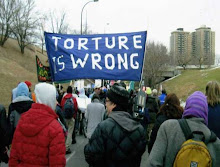
IS WRONG

Agencies

Stop Killing Peace

August 6,1945

1923-D Silver Peace Dollar

taking a break in St. Paul

Jane Addams

War is hell

PEACE ON EARTH

Coleen Rowley

Dr. Bob Bowman

ONE PLANET ONE HOME

dwell amongst us

IRAN

attends a peaceful assembly

HOME NOW

Bring them Home Safely

HOME NOW

In our life time

A World without WAR

Human Rights

PEACE IS PRICELESS

Not Fatah - Not Hamas
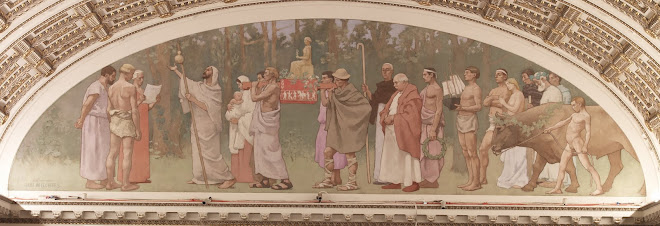
Library of Congress

Why do we have wars?

a special presidential assistant who also is director of the Food for Peace program

Alison Weir's efforts

Voices for Palestine

Iran Deal Exposes GOP Foreign Policy Idiocy

will war ever end?

Minnesota State Capital

Follow the money

Carl Sagan

George Orwell

They flourish!

1918-2013

Nuremberg Trials 1946

Middle East Peace Now

WAR RESISTERS

One Million for Peace

THE EMPOWERED MAN

non-violence and humor

58,282 names to date May 16,2012


IS TAXING!

LOVE PEACE

We must combine the toughness
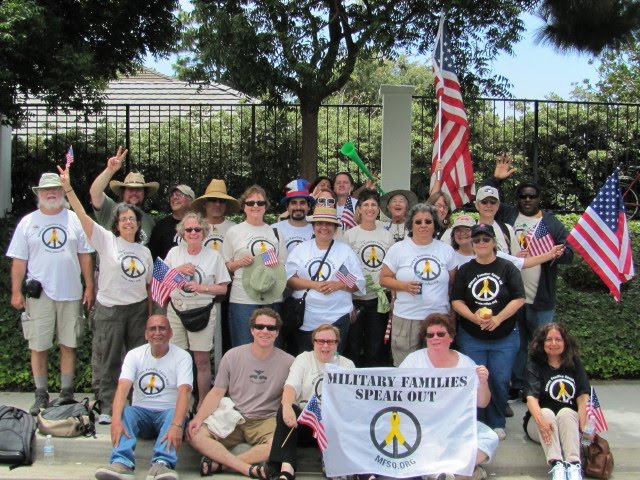
NOW IS THE TIME TO SPEAK OUT!

working for you?

LIVE IN PEACE

including several children.

photo by Jules Ameel

photo by James Nord

of Afghanistan's Helmand province. Photo: David Guttenfelder
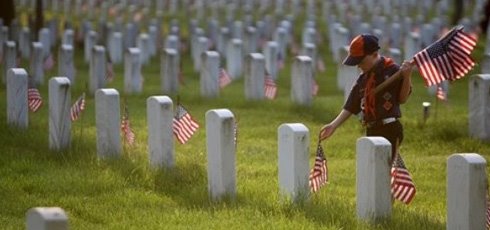
Cub Scout Kyle Maebert places American flags. (Photo: AP)

They need to be home

Bring them Home

Support Our Troops

Dust storm

AGAINST THE WAR

FOR YOUR FREEDOM


adviser for reconciliation, acknowledged “fundamental differences” with the United States over policy toward the Baathists.
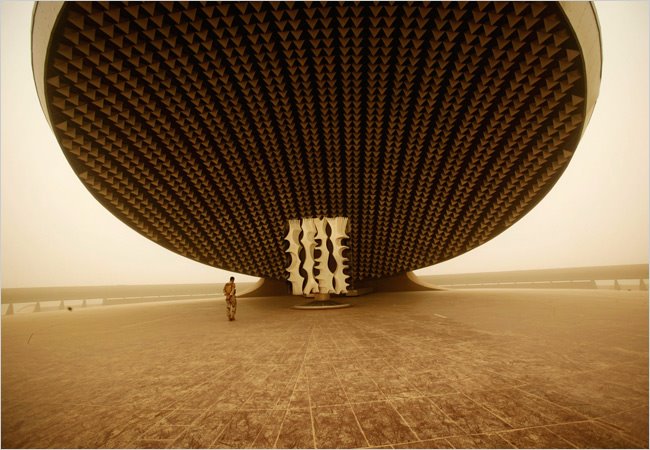
Tribute to Our Fallen Warriors?
Global Peace We the People want Peace. Contrary to the Hawks that profit from Our Families' pain and bloodshed. We the People, have had it with Corporate Media wanting US to propagate the Pentagon propaganda. We the People, have the right to Freedom of Speech. Stand up & Speak out. May Peace Prevail on Earth.
ENVIRONMENTAL

ISSUES
SPRAYING BUGS

SPRAYING HUMANS
Who rules over you?

Voltaire
MEP

Clare Daly
Abby Martin

THE EMPIRE FILES
Blog Archive
-
▼
2015
(356)
-
▼
May
(37)
- Donetsk People's Republic - Webster Tarpley (World...
- Peter, Paul and Mary "Don't Laugh at Me"
- Hillary, As Secretary of State, Showered Billions ...
- Mike Ruppert - The Grand Chessboard (or The Plan f...
- How the Cold War became the War on Terror
- President John F. Kennedy's "Peace Speech"
- Our Mania for Hope Is a Curse (from @Truthdig)
- Progressives Expose Truth About TPP -- Obama Is Te...
- War is a Racket by Smedley Butler
- Matt Taibbi: World’s Largest Banks Admit to Massiv...
- The Murder of JFK
- How the media is perverting the CA water story
- House Passes Nolan Defense Amendment
- The Pathology of the Rich White Family (from @Trut...
- 10,000 Year Old Ice Shelf About To Vanish
- The Story of Peter Iannaccone WWII Veteran Used fo...
- Who is Putin
- Global Internet Activists Give Thumbs Down to Face...
- What is your motivation at the midpoint of the year?
- Geoengineering, Hurricane Manipulation, And Ocean ...
- Webster Tarpley on Rense radio (5-6-2015) Donetsk ...
- Walmart drawing water from Sacramento public water...
- A Bright, Sunny Day in Moscow
- Jeffrey Sterling gets prison, David Petraeus doesn...
- A Nation of Snitches (from @Truthdig)
- Who Really Won World War II?
- Is this seat taken? The power of sitting with your...
- Chris Hedges - The Pathology of The Super Rich
- To Bring The Change
- New threat for astronauts heading to Mars – dement...
- Chomsky on Snowden
- Operation Fearless Guardian - US troops in east Uk...
- UN peacekeepers wounded by mortars on Golan Heights
- Make the Rich Panic (from @Truthdig)
- 9/11: The live footage they made disappear
- The Climate Engineers Can No Longer Suppress El Niño
- Primetime coverage of police brutality long overdu...
-
▼
May
(37)
WE the People

This is what democracy looks like!
Chris Hedges

American Journalist
That moment when you realize

Fighting for G.O.D.
THE WAR ON DRUGS

Is a Myth
Firefighter

Captured in Ice
NAOMI KLEIN

The Leap Manifesto
Each of us is a tiny being

Carl Sagan
TRUE LEADERS WORK FOR

PEACE
War is monstrous

The Dalai Lama
JUDAISM

REJECTS ZIONISM
There's a plot in this country

7 days before his assassination
President John F. Kennedy at work in the Oval office in 1962.

George Tames/The New York Times
David Icke

English Writer/Speaker
Sister Simone Campbell

AP Photo/Charlie Neibergall
BANKSTERS

TO BIG TO JAIL
JFK

Summer of August 1963
Rep. Betty McCollum

CARE Conference in Washington, D.C. (Amanda Lucidon/CARE)
KATHY KELLY

HUMANITARIAN
Yoko Ono John Lennon

WAR IS OVER
BRIGID McDONALD

Member of WAMM
MAKE JOBS

NOT WAR
Malak and Mnar Muhawesh supporting

WE SAY NO TO WAR, PEACE is a HUMAN RIGHT
Mnar Muhawesh

MintPress News founder and editor
Malala Yousafzai

Becomes Youngest Winner of Nobel Peace Prize
Dahlia Wasfi,MD

Inspiration, Activism and Solidarity
Jessica Belt

IARP Deputy Director
MEDEA BENJAMIN

CODEPINK/Global Exchange
Freedom of Speech

STAND UP & SPEAK OUT
SOLAR ENERGY

Ralph Nader
JFK Jr.

1960-1999
Instrument of Peace

by Wilfred Owen Welsh Poet
Three Kennedy Brothers

at Rackets Hearing
JOAN BAEZ

PEACE OUT OPOL
Alison Weir Journalist

If Americans Knew - what every American needs to know about Israel/Palestine
When the power of love overcomes

Jimi Hendrix
DANIEL BERRIGAN

LEADER OF PEACEFUL OPPOSITION
Scott Rickard

Former American Intelligence Linguist
Bank of China

devaluate the yuan
Dennis Kucinichn

Former congressman
Jafar M Ramini

Journalist
G4S operates in more than 100 countries and has over 600,000 employees

according to its website. (Lars Schmidt)
WAR

IS NOT THE ANSWER
Our thoughts and prayers for the people of

NEPAL
Don't look away

keep reading
Surviors of war

IRAQI CHILDREN
Rep. Alan Grayson

MODERN WARFARE
Tom Hayden Speaking Out

One of the Chicago 8
Bill Moyers

Early years of his career
People Building Bridges

Friends of Tent Nations
Sami Rasouli

A Man with a Soul
Suaad Allami

2014 Global Leadership Awards
WAR is not Healthy

to all living things
IF A FREE SOCIETY

CANNOT HELP POOR
WHICH WAY TO GO

ALL YOU HAVE TO DO

HERMANN GORING
AMERICA HAS BEEN AT WAR

222 out of 239 years since 1776
Pearl Harbor

December 7,1941
TORTURE

IS WRONG
Climate Mafia

Agencies
Israel

Stop Killing Peace
Hiroshima in Ruins

August 6,1945
Global Peace

1923-D Silver Peace Dollar
Playing for Change Crew

taking a break in St. Paul
True Peace

Jane Addams

War is hell

PEACE ON EARTH
Bring 'em Home

Coleen Rowley
MAY HE REST IN PEACE

Dr. Bob Bowman

ONE PLANET ONE HOME
May the Spirit of PEACE

dwell amongst us
NO WAR with

IRAN
AVATAR
attends a peaceful assembly
BRING THE TROOPS

HOME NOW
Support the Troops

Bring them Home Safely
Bring the Troops

HOME NOW
World Peace

In our life time
Imagine

A World without WAR
Managing Editor
WE THE PEOPLE, WANT PEACE.CONTRARY TO THE HAWKS THAT PROFIT FROM OUR FAMILIES PAIN AND BLOOD SHED. WE THE PEOPLE, HAVE HAD IT WITH CORPORATE MEDIA WANTING US TO PROPAGATE THE PENTAGON PROPAGANDA. WE THE PEOPLE, HAVE THE RIGHT TO FREEDOM OF SPEECH. STAND UP & SPEAK OUT. MAY PEACE PREVAIL ON EARTH.
Eleanor Roosevelt

Human Rights
WAR IS EXTREMELY COSTLY

PEACE IS PRICELESS
ZIONISM IS THE PROBLEM

Not Fatah - Not Hamas
Mural of Peace

Library of Congress
Mommy

Why do we have wars?
Jan. 24, 1961 President John F Kennedy talks, with George McGovern

a special presidential assistant who also is director of the Food for Peace program
If Americans Knew

Alison Weir's efforts
PALESTINE LIVES

Voices for Palestine
Peace in Middle East

Iran Deal Exposes GOP Foreign Policy Idiocy
Peaceful Revolution

will war ever end?
PROTEST

Minnesota State Capital
Lord Jacob Rothschild

Follow the money
The dumbing down of America

Carl Sagan
The essential job

George Orwell
Corporations don't die in wars

They flourish!
Nelson Rolihlahla Mandela

1918-2013
Hermann Goering

Nuremberg Trials 1946
MEPN

Middle East Peace Now
I LOVE

WAR RESISTERS
American Friends Services Committe

One Million for Peace
FREEDOM

THE EMPOWERED MAN
JOHN LENNON

non-violence and humor
THE VIETNAM WALL

58,282 names to date May 16,2012
Mother's Day 2012

WAR

IS TAXING!

LOVE PEACE

We must combine the toughness
YOUR VOICE IS NEEDED!

NOW IS THE TIME TO SPEAK OUT!
WAR ECONOMY

working for you?
YES WE CAN

LIVE IN PEACE
Occupation soldiers stand around a group of Afghan civilians,

including several children.
Anti-War March Minneapolis

photo by Jules Ameel
No WAR on Afghanistan

photo by James Nord
US Marines sleep inside their compound in the Nawa district

of Afghanistan's Helmand province. Photo: David Guttenfelder
During a Memorial Day event at Long Island National Cemetery,

Cub Scout Kyle Maebert places American flags. (Photo: AP)
Time out on the Field

They need to be home
War is Ugly

Bring them Home
In the trenches

Support Our Troops
Harzardous to their health

Dust storm
U.S. LABOR

AGAINST THE WAR
TAKE A STAND

FOR YOUR FREEDOM
Swords of Qadisiyyah, also known as the Hands of victory during a dust storm.

Mohammed Salman al-Saady, the Iraqi prime minister’s

adviser for reconciliation, acknowledged “fundamental differences” with the United States over policy toward the Baathists.
Tomb of the Unknown Soldier Monument in Baghdad during a dust storm.

Tribute to Our Fallen Warriors?
7 comments:
Fortune favored the Russians this past Saturday. The sun shone, birds twittered in the shrubbery alongside the Kremlin’s walls and pathways, Moscow’s golden domes gleamed in the bright light of a bright day, and the bad manners of the European and American leadership’s ingrates and hypocrites, who boycotted the event, had an effect comparable to that of water off a duck’s back..
From the parade’s opening moment, when – in a first – Russia’s much-loved Defense Minister, Sergei Shoigu, bowed his head and made the sign of the Orthodox cross before signaling his driver to proceed, the largest Victory Day parade Moscow has ever undertaken came off without a hitch; Putin delivered a gracious speech, the large military band performed with great aplomb, sixteen thousand soldiers and seamen marched smartly across Red Square, joined by troops from over ten countries including China, Mongolia and India, and a contingent of female military cadets made their first appearance among parade participants. The Air Force, led by Hero of Russia Lieutenant General Viktor Bondarev, flying the lead plane, a beautifully-designed TU 160-M long range strategic bomber, performed their fly-overs expertly. The entire extravaganza was well-organized and crisply executed, lasting little more than an hour top to bottom.
The last Victory Day parade I attended was in 1995 when the parade was re-instituted on Poklonnaya Hill after a hiatus of several years in the wake of the Soviet Union’s collapse. Bill and Hill attended, and I recall a not so spirited an affair; in fact, it was grim despite the spectacle. It seemed to go on for hours, and the marchers’ passing faces were just as expressionless as Hilary’s.
Today’s marchers were altogether different. Passing lines of eager cadets from the military academies and enlisted soldiers leaned ever so slightly forward trying hard to stay on form, march, and still catch a glimpse of Putin, and quite a few couldn’t suppress happy grins, which I’m pretty sure is nelzya (“not permitted”) for marching soldiers. I didn’t see a one twenty years ago, but I doubt even Marshall Zhukov would have begrudged any soldier’s smile on such a perfect day.
Though a display of weaponry and human muscle was the event’s focus, a holiday mood prevailed. Yet it was a day of solemn commemoration, devoid of a single belligerent note. The Russians recalled their warriors’ great achievement of having triumphed in the greatest and bloodiest war the world has ever known and their ancestors’ immense suffering in paying the price of that achievement (27 million dead), showed the world some new, suitably lethal weapons, while smiling back at western disdain as if to say, “We are among the most resilient and resourceful people on the planet. You cannot, and you will not, defeat us.”
For all that, it was singularly depressing to learn at day’s end that the recent violence in Macedonia, a key link, but the weakest, in the Russians’ new Turkish Stream pipeline project meant to replace the South Stream project European sanctions had prompted Putin to scuttle, may well be the start of another U.S.-organized rainbow revolution. It is critical to the success of western pipeline sabotage that Russia fail to establish a link between Greece and Serbia.
After the riots and murders in Skopje, “Macedonian police,” targeted pertinent offices in both Skopje and Veles, seizing “five laptops, three desktop computers, 19 mobile phones, 100 compact discs, 17 hard-drives and nine digital books – material that reveals connections to (Victoria) Nuland and her collaborators against the government.”
The collaborators? All the usual suspects: Open Society, CIA, Freedom House, NED, and USAID-funded radio and television stations. The U.S.-organized wolf pack has new prey, it seems.
Counter-balancing my gloomy thoughts was a friend’s emailed link to an article F. William Engdahl, a frequent contributor to New Eastern Outlook, published upon his return from a recent visit to Moscow. Engdahl’s work is good reading, but here he focuses on Russia’s remarkable spiritual turnaround. Emiges are returning home, seeing greater opportunity there than here. People are ready to roll up their sleeves, and Russians are experts at making a little go a long way. Engdahl describes the new endeavors and spirit of Russia’s “hybrid generation,” who had “experience of both the depravity of Soviet communist bureaucracy but as well of the hollow world of US-led so-called ‘free market capitalism’.”
Putin’s pro-active governance is meant to deliver certainty and stability to Russian life. The Russian president’s determination to protect the country’s sovereignty and very existence while devising new structures and institutions to secure the land and expand citizens’ prosperity has led not only to an environment in which the young might thrive, but may have succeeded – if only by a hair – in reversing Russia’s alarming demographics. In 2009 the birth rate exceeded the death rate, but just barely. If this trend holds, it may well be Putin’s double achievement to have saved both the land and the Russians themselves.
I cannot say how it is today, but in the late 80s and throughout the 90s, the very best place to be on Victory Day was Teatralnaya Ploshchad (“Theater Square”) across from the Bolshoi, in the shadow of Lev Kerbel’s iconic bust of Karl Marx. It is in this square that the veterans, having put on their old uniforms and grabbed the family accordion or pocketed a harmonica on their way out the door, congregate each year for their own celebration. It was never organized in those days, it just happened. What fun it was to hear their stories and their songs, and share in the atmosphere of what Putin referenced in his parade speech as “the brotherhood of the front line.”
It was in Teatralnaya Ploshchad that I met a veteran, who hooked me up to Evgeny Khaldey, a renowned World War II photo-correspondent. On the first holiday marking the October Revolution after the demise of the Soviet Union in 1992, I went to visit him in his dusty studio, which was packed with what to me was pure treasure. Throughout the war, Khaldey carried both a camera and a gun; in other words, he photographed and he fought. Consequently, his photographs captured the miseries ordinary people – civilians and soldiers alike – suffered.
He had been at Potsdam when Truman, Churchill, and Stalin met, and he reported that when Stalin, “a very mysterious figure,” entered the hall both Churchill and Truman stood! He laughed softly at my reaction and said, “All Americans are so innocent, what a pity I have met so few of you. But you can’t just say Stalin was terrible, he was also great, and Truman and Churchill knew that, and that’s why they stood.” After a moment, he added quietly, “No one is great today.”
While we were speaking of “the mathematics of war,” I was sifting through the many piles of his extraordinary photographs, which I sensed surrounded us because the old man had been searching his oeuvre for something that might be sold for ready cash. The times were hard. A particular picture caught my eye since it was unlike the others in the pile, but I see why at first.
“That’s not an old picture,” Evgeny said. “It’s my family’s grave. I took a picture the last time I made my pilgrimage to Donetsk, which I don’t suppose I’ll ever do again.” He saw that the photograph now puzzled me even more as I stood squinting at it.
Post a Comment